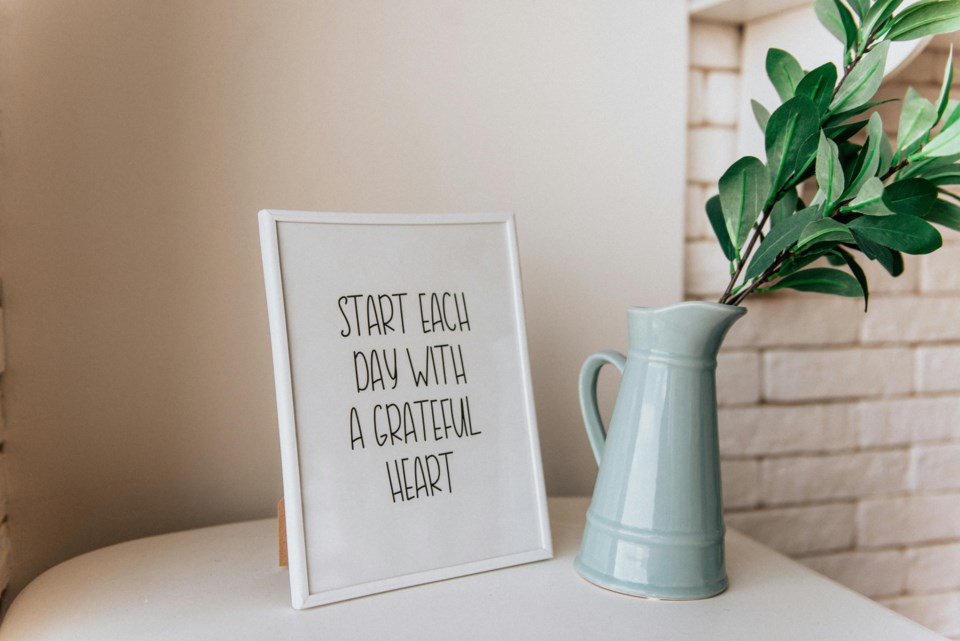Gratitude statements like “Thanks! You are so kind!” and “Thank you! What you did was really helpful,” are common when someone receives assistance from another person. Such expressions of gratitude and appreciation have long been thought to encourage the helper to do kind things again in the future. But do they?
In contrast to past research, our new findings published in the Journal of Experimental Social Psychology suggest that gratitude does not always promote future helping.
Our research was conducted using a new approach called a Registered Report. It required that the design of our experiment, along with our hypotheses and analytic plans, were vetted by experts before we started. This new best practice in science increases rigour and transparency.
Expressions of gratitude
We conducted two large pre-registered experiments and found mixed results. In the first experiment, more than 600 university students recorded a short video to welcome a new student (played by a member of our research team) to campus.
In response to this kind act, we sent participants one of three randomly assigned pre-recorded videos. Some participants received a video in which the new student expressed gratitude for the participant’s kind act: “Thank you! What you did was very kind.”
Other participants received a video in which the new student expressed gratitude for the participant’s kind character: “Thank you! You are very kind.”
Finally, some participants in a control condition received a video of the new student acknowledging that they had received the recording, but with no expression of gratitude at all.
Afterwards, all participants were invited to write up to five brief notes to welcome other new students to university, which we treated as a measure of future helping behaviour.
Reception and kindness
By sending participants one of the three video replies, we were able to test two important questions about gratitude. Does receiving an expression of gratitude, regardless of whether it mentions your kind act or kind character, lead to more helping in the future compared to not receiving gratitude? Also, does the content of the gratitude matter — in other words, do some gratitude notes lead to more helping in the future than others?
To find out, we compared how many welcome notes participants wrote across the three video conditions provided. We found no differences across conditions, which suggests that receiving a gratitude expression and its contents may not impact future helping.
These results were in contrast to our predictions and past work by others.
Written expressions
Welcoming new students is one way to be kind, but there are many other ways to help. So, we conducted another experiment to test the same key questions. Does receiving a gratitude expression increase future helping behaviour? And does the content of the gratitude message matter?
This time, however, we used written thank-you messages instead of videos and measured helping in the form of donations.
Over 800 adults recruited online completed an innocuous survey that provided an opportunity to complete an initial kind act of donating to charity. Two days later, participants were invited back to complete a second survey that began with what we told participants was a thank-you letter from the charity they supported — participants received one of three letters we had created for the purposes of our study.
As in the first study, some participants were thanked for their kind act: “Thank you! Your generous donation was very kind.” Other participants were thanked for their kind character: “Thank you! You are very kind and generous.”
Once again, some participants did not receive a message of thanks, but were informed that their donation had been received. Participants completed a few other questions and were then given the opportunity to help again by deciding how much, if any, of an additional one-dollar bonus they would like to donate to a new charity.
We compared donations across the three conditions and found that people who received a thank-you note gave more money than people who received a simple message that their donation was received. Donation levels did not differ between the two types of gratitude expressions. People thanked for their kind act gave roughly as much (42 cents) as people who were thanked for their kind character (42 cents), which was higher than the 34 cents given by people in the control condition.
Everyday importance
While we did not see significant differences in help provided by people who were thanked for their kind action or character, this does not mean that people should stop saying thanks. Expressing gratitude can make the person expressing appreciation feel good and strengthen social relationships.
There may be less reason to stress over how exactly you express your appreciation to others. Past research has shown that many people are uncertain about how to properly and eloquently relay their gratitude.
Unfortunately, these worries can reduce the likelihood of someone sharing a simple but heartfelt statement of appreciation and our work reinforces this same underlying idea.
Exactly what is said when expressing thanks may be less important than communicating appreciation.
Kelton Travis, an honours undergraduate student in psychology at Simon Fraser University, co-authored this article.
Lara B Aknin receives funding from the Social Sciences and Humanities Research Council of Canada.
Anurada Amarasekera, Kristina Castaneto, and Tiara A Cash do not work for, consult, own shares in or receive funding from any company or organization that would benefit from this article, and have disclosed no relevant affiliations beyond their academic appointment.



